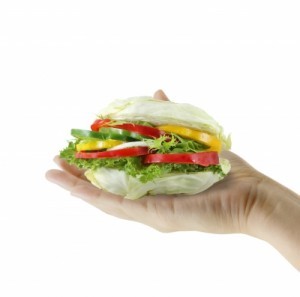The Dangers Of Fad Dieting
 Almost everywhere you turn, fad diets are appearing. They often deliver results, but at what cost? Is there a healthier but still effective option?
Almost everywhere you turn, fad diets are appearing. They often deliver results, but at what cost? Is there a healthier but still effective option?
You’re joining your friend for lunch. She looks great. She’s shed the extra twenty pounds that she’s been carrying since college, and she’s dressed in a slinky black outfit that makes you a bit envious. When you question her about it, she tells you she’s been on the Atkins diet. She proceeds to recount how she ate a pile of bacon for breakfast, and some pork rinds for a midmorning snack, and you feel your eyes widen in shock when she orders a double cheeseburger off the menu. Is this really a smart diet?
“Are you really going to eat that?” You stare in awe at the size of the two monster hamburger patties. She quickly peels the bread off her burger, discarding it on the side of her plate.
“Sure,” She quips. “I can eat all the meat I want, cooked anyway I want.”
With all the fad diets circling around, it’s important to evaluate a diet before signing on. Is it really a smart diet? Sure, your friend looks amazing, but can it really be healthy to eat a pound of bacon and greasy burger meat every day? It doesn’t sound like a smart diet. The fact is that your body needs carbohydrates for energy, and people on the Atkins diet have reported fatigue and even experienced high blood pressure.
The same is true of low fat diets. While you may drop weight fairly easily by limiting your fat grams, it’s not really a smart diet. Your body actually needs some fats. These fat-free foods are often loaded with extra sugar to make them taste better.
There are literally too many current fad diets to list. Most of them include loading up on a particular type of food while depriving yourself of other foods. In the case of diets like Atkins diet, you are not allowed to eat carbohydrates. What you aren’t being told is that this is not a smart diet. Not only does your body need carbohydrates, it also shifts into carbohydrate starvation mode when you finally splurge on one, storing it as fat. Your body doesn’t know when it will get this type of fuel again.
Most physicians will tell you that a smart diet consists of a variety of different food groups. This means incorporating every group (even carbohydrates) in moderation.
The bottom line is that to lose weight, you simply have to cut calories. Although most people acknowledge this would be a smart diet, they often crave the immediate results that some not-so-smart diets offer.
Perhaps you’ve tried smart dieting. You’ve selected the proper foods, you’ve even developed an exercise plan, but you’re miserable. The weight isn’t coming off all that quickly, and quite frankly, you’re just starving. That’s the reason you binged on the pizza from Dominos last night, and it’s probably the reason you thought you deserved that extra helping of mashed potatoes. If only you could stick to a smart diet without feeling deprived.
The good news is that you can. I’m not talking about diet pills because you’re probably smart enough to know the dangers of those products. I’m talking about a vegetable… an all natural cactus-style plant literally changing the way people look at dieting. If you missed the specials on the Today show and 60 Minutes, let me fill you in. Hoodia Gordonii is a plant from the South African desert. Bushmen used it for centuries to ward off hunger. It tricks your body into thinking that you’ve eaten, limiting your consumption by up to 2000 calories a day.
Remember that a smart diet is one that limits calories, not one that tells you to avoid certain food groups entirely. With Hoodia Gordonii, you will have the extra willpower you need to commit to a smart diet. It’s easy when you’re not hungry. Best of all, this isn’t a drug. It’s a vegetable, so it’s healthy and safe. Say goodbye to fad diets and give something smart a try.